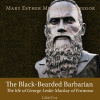Summary
Like many soldiers at the beginning of their military careers, Harry Penrose has romantic ideas of climbing the ranks and attaining hero status. However, while stationed at Gallipoli, the realities of war begin to take their toll on Penrose, not only physically, but also mentally where the war has become a 'battle of the mind.' This is his story as related by a fellow soldier, as well as the story of the campaign at Gallipoli which is vividly portrayed from the author's own personal experiences.During his tenure as an officer, Penrose slowly asserts himself; the war takes a toll on his personality, but he begins to live up to his early dreams of heroism. However, his creeping self-doubt grows by degrees; following Gallipoli, he is reassigned from his post as scouting officer once on the Somme, knowing he cannot face another night patrol, and earns the wrath of his commanding officer — an irascible Regular colonel — over a trivial incident. The colonel piles difficult, risky work on him — remarking to the narrator that «Master Penrose can go on with [leading ration parties] until he learns to do them properly» — and Penrose submits, working doggedly to try and keep from cracking. After a long period of this treatment, by the winter of 1916, Penrose's spirit is worn down. What follows his downward spiral may surprise and even shock today's readers, but was common and controversial at the time. (Introduction adapted from Wikipedia with contributions from the narrator and the proof listener.)
Authorization
By logging in, you agree to the terms and conditions.













No comments